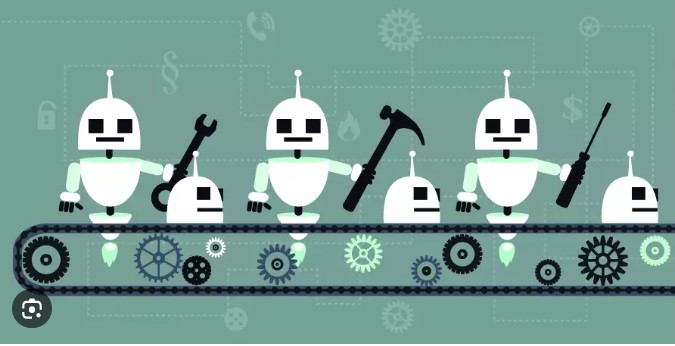
In recent years, the news has been abuzz with discussions about the rising threat of Artificial Intelligence (AI) to various job sectors, including Information Technology (IT). As AI technology continues to advance, there are growing concerns about its potential to replace or disrupt traditional IT roles. Let’s delve into this topic and explore the implications of AI on IT jobs.
The Progress of AI: AI has made remarkable progress in automating routine tasks, analyzing vast amounts of data, and even performing complex decision-making processes. This progress has led to speculation that AI will eventually render many IT jobs obsolete. From automated code generation to AI-driven network management and cybersecurity solutions, the potential for AI to disrupt the IT job market is undeniable.
Automation of Repetitive Tasks: One of the areas where AI poses a significant threat to IT jobs is in the automation of repetitive and rule-based tasks. Tasks such as software testing, data entry, and system monitoring, which were previously performed by human IT professionals, can now be executed more efficiently and accurately by AI systems. As AI algorithms improve, the need for human intervention in these tasks diminishes, potentially leading to a reduction in certain IT job roles.
Shift in Skill Requirements: As AI technology continues to evolve, there is a shift in the skill requirements for IT professionals. While routine tasks may be automated, AI necessitates a new set of skills, such as data analysis, algorithm development, machine learning, and AI system implementation and management. IT professionals who adapt and upskill themselves to work alongside AI technology will likely find new opportunities and remain relevant in the job market.
The Rise of AI Specialists: With the growth of AI, there is an increasing demand for AI specialists who possess deep expertise in developing and deploying AI systems. These specialists work hand in hand with IT professionals, leveraging AI tools and techniques to enhance efficiency, solve complex problems, and drive innovation. Thus, while some traditional IT roles may be affected by AI, new roles and opportunities are emerging for those with AI expertise.
Augmentation, not Replacement: It is important to note that the impact of AI on IT jobs is more about augmentation than complete replacement. AI technology has the potential to augment and enhance the capabilities of IT professionals, rather than rendering them obsolete. AI systems can assist in data analysis, automate mundane tasks, and provide valuable insights that enable IT professionals to make informed decisions and focus on higher-value strategic initiatives.
Adapting and Upskilling for the Future: The key to navigating the threat of AI to IT jobs lies in adaptability and upskilling. IT professionals must embrace lifelong learning and proactively acquire new skills to stay ahead of the curve. By developing expertise in AI-related fields, such as machine learning, natural language processing, or robotics, IT professionals can position themselves for the emerging roles and opportunities in the AI-driven job market.
While the rise of AI undoubtedly poses challenges to certain aspects of the IT job market, it also brings forth exciting prospects for those who can adapt and evolve with the changing technological landscape. By staying informed, upskilling, and focusing on areas where human creativity, critical thinking, and problem-solving skills are indispensable, IT professionals can continue to thrive and shape the future of the industry.
In conclusion, while the threat of AI to IT jobs is a topic of concern, it is crucial to view it as an opportunity for growth and transformation. By embracing the evolving nature of technology and proactively acquiring new skills, IT professionals can stay relevant, contribute to the development of AI-driven systems, and unlock new possibilities for themselves in the digital age.
